Youth leaders from the Catholic Diocese of Eldoret, in Kenya, converged at St. John’s Pastoral Center, Eldoret from 20-24 February 2023 for a four-day AJAN HIV and AIDS Prevention Program for the Youth (AHAPPY) training for trainers in collaboration with the Youth Chaplain Office, at the Diocese.
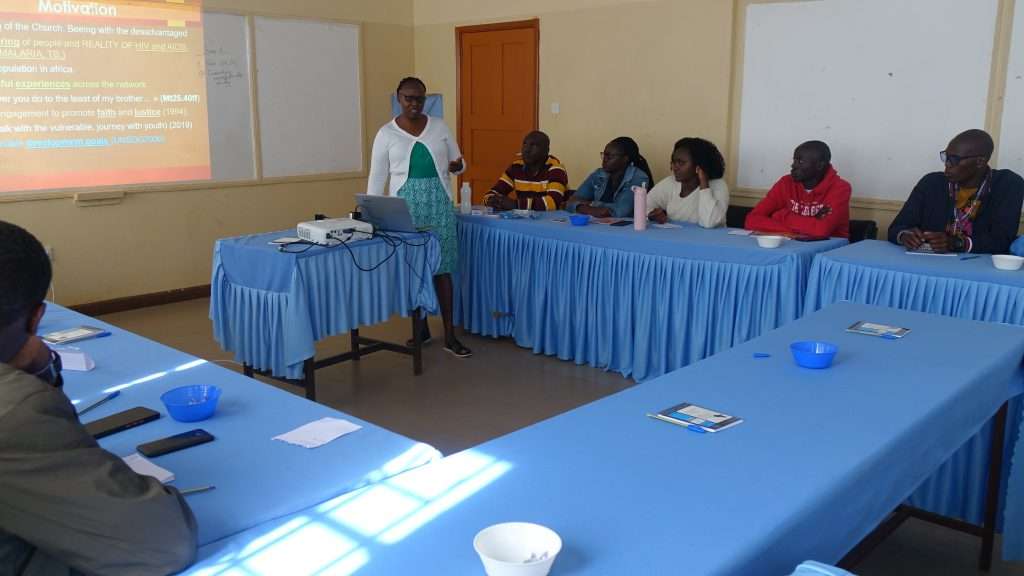
The training kicked off on the morning of February 21st. Fr. Jonas Kiplimo, the youth Chaplain of opened the meeting with a word of prayer, then introduced the facilitators of the training, namely: Ms. Pascalia Sergon, Mr. Dennis Owuoche, and Ms. Mary Wanjogu.
The Chaplain continued by stating how he is grateful for this opportunity to partner with AJAN in providing the youth with an avenue to engage them and empower them with the knowledge that they will use in undertaking missions, once commissioned at the end of the four-day training. In the opening remark, Fr. Jonas invited the 23 participants between the ages of 20 to 27 years to be attentive, corporative and open to learning, “Every one of you that has been invited here has been chosen for a reason, you need to know why instead of other leaders from your parish it is you that we chose, there is something special about you and this is an opportunity for you to gain the needed knowledge and skills to go and empower fellow youths, the facilitators are here to empower you, take this time and get to socialize with them.”
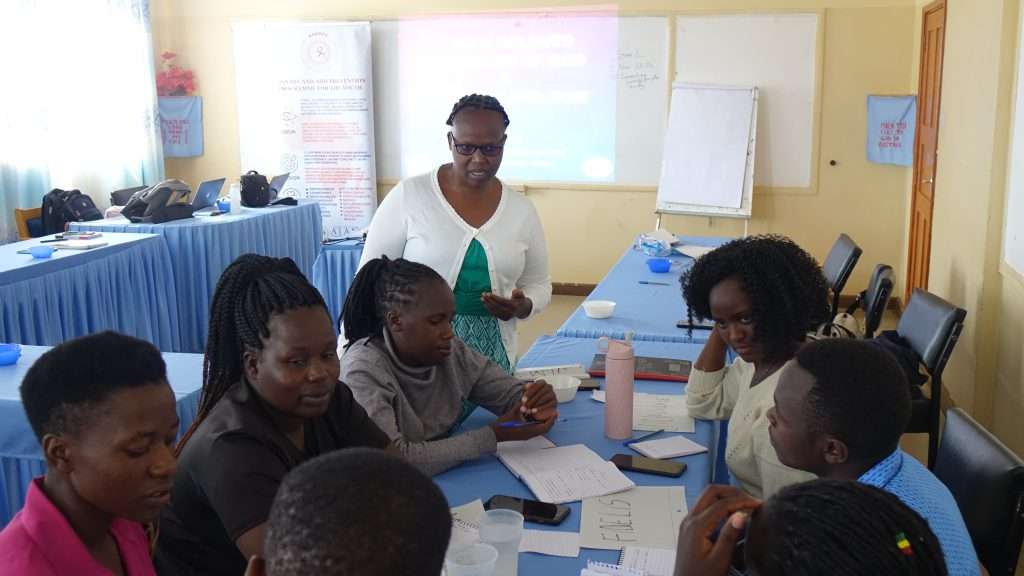
On the first day, the participants had an open mind and were ready to learn. Ms. Pascalia started off the session by introducing the history and the importance of the work of the Jesuits in Africa and what led to the establishment of AJAN in the year 2002, the vision and objectives to be achieved through training of the AHAPPY program. She transited to the first module (Module A) “Awakening to myself” where the youth leaders were introduced to how they view the world and the need to know that they have a duty to protect the world that they live in and give it back to God better than they found it. With that knowledge in mind, the facilitators moved to introduce the participants to a new topic, the “human dimensions”, making them aware that we are all created in the image and likeness of God (Gn.1,26), each of us has a mission of being a gift to the world and to one another.
By the end of the presentations on day one, the participants needed to answer the question, “Do they know themselves very well?” This was answered by a practical exercise given to them. Upon the conclusion of the exercise most participants were left in awe of the image they had drawn and what it depicted them to be.
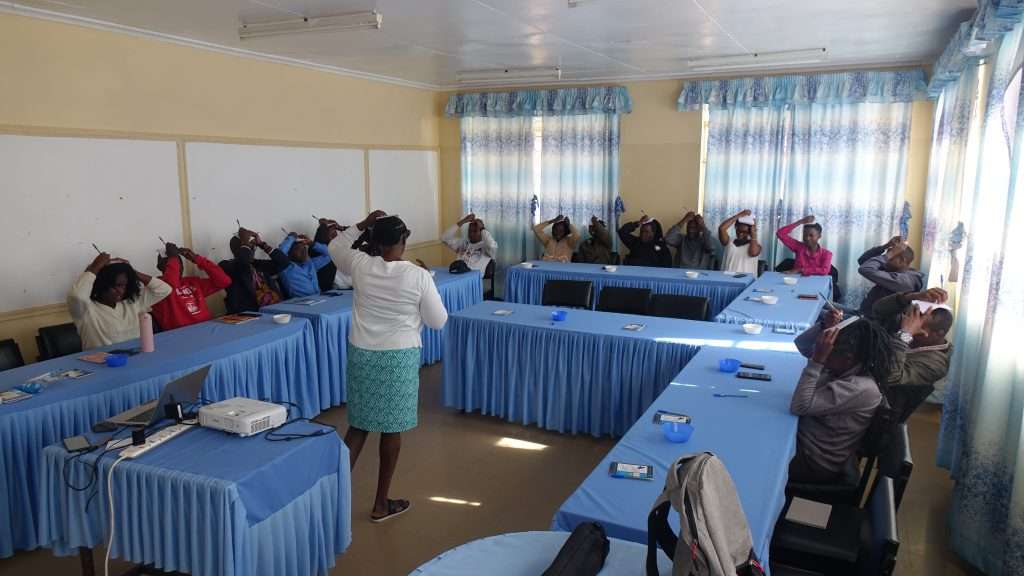
The following sessions on days two and three saw the participants get a deeper inside on Module C: “Facing a world with HIV and AIDS”. Ms. Pascalia introduced the topic focusing on the current situation of the epidemic in Africa, the arising issues that touch on the importance of the youth in taking a leading role to creating awareness around the disease. To localize the topic and discussion, Ms. Pascalia invited two participants, Winny Cheboi, a counselling psychologist and Belinda Jepkemoi, a nurse to bring more insights on how one can be infected with HIV, the preventive measures, the stages of HIV infection, the underlying issues, why at times the disease is undetectable in some people until at a later time.
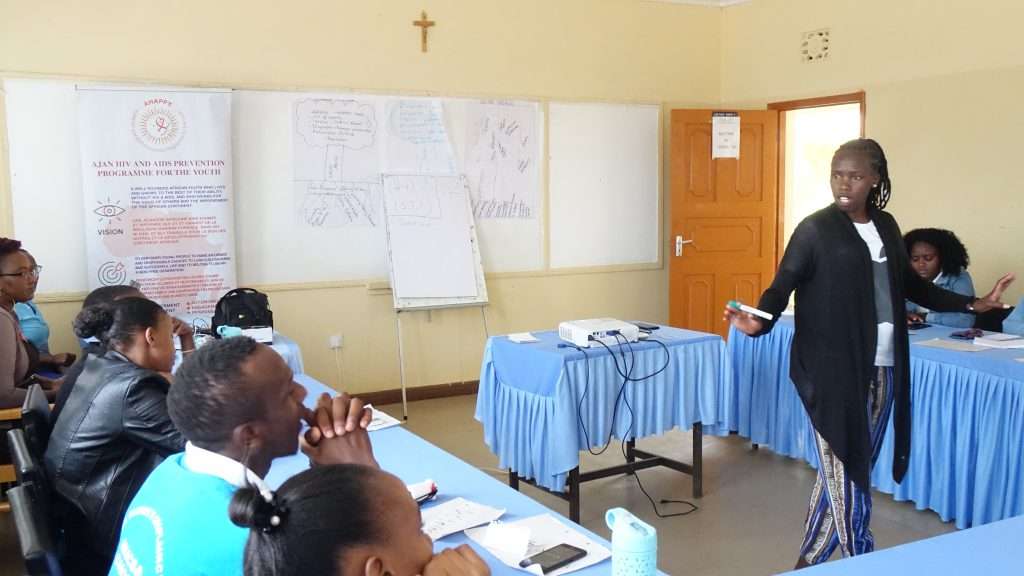
While encouraging the youth present to abstain from sex, the session provoked critical questions, “The number of times and when one should go for voluntary counselling and testing (VCT).” In addition, a discussion on the two types of HIV ensued Belinda a nurse practitioner shared her knowledge with participants by stating that, HIV 1 is the most common Trusted Source type of HIV, and it occurs all over the world. According to the HIV awareness charity Avert, around 95% of people living with HIV have HIV-1 while HIV-2 is mainly present in West Africa, but it is slowly starting to appear in other regions, including the United States, Europe, and India. What came out of this discussion is that, not all tests and treatments work for both types of HIV. Ms. Pascalia ended this session with participants watching a video with testimonials of those infected and affected by HIV.
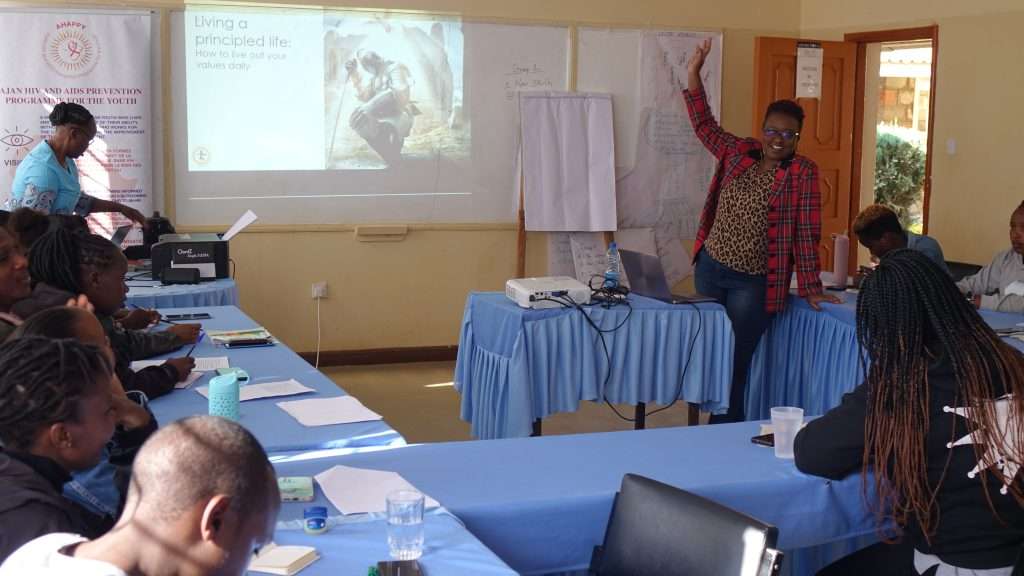
The session on mindset and mentorship under (Module B) The “World that they live” led by Ms. Mary Wanjogu awakened the participants to the present reality of the youth being stagnant and not exploring opportunities and potential that they have at hand in the face of unemployment. While challenging the youth leaders to have a moral stand when it comes to issue that touch on ethics and integrity, Mary used her own life story of her journey to success to encourage the youth to be principled in life. At the end of the session Winny, had this say, “The session on mentorship and mindset is one which I have learned a lot, being a psychologist, I work with young people a lot and therefore the knowledge that I have gained is more impactful to me personally and additionally to my career, as it will help me grow moving forward.”
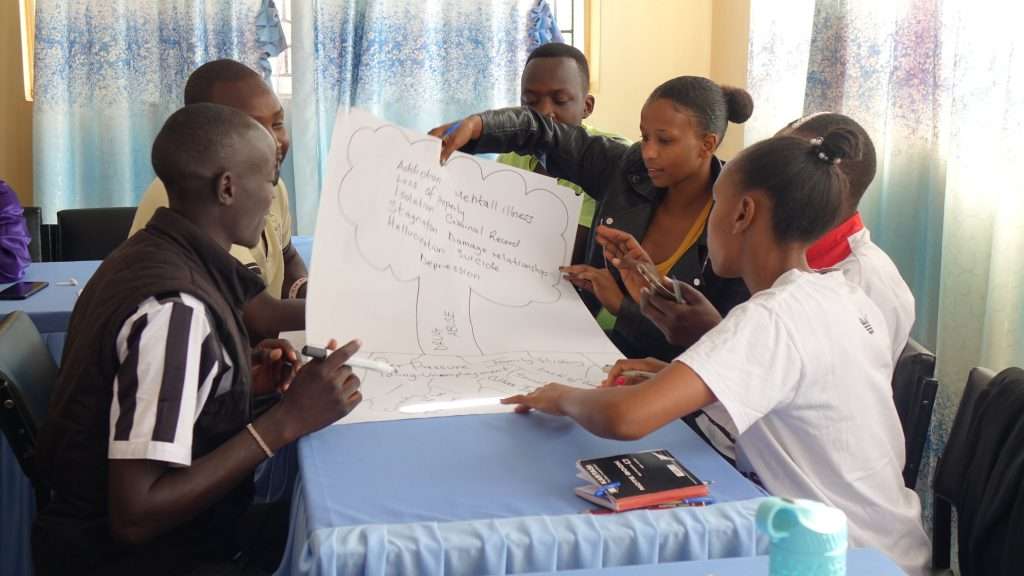
At the end of the second-day session Winny the counseling psychologist, had this say, “the session on mentorship and mindset is one which I have learned a lot, being a psychologist, I work with young people a lot and therefore the knowledge that I have gained is more impactful to me personally and additionally to my career, as it will help me grow moving forward.”
This is what some of the participants had to say at the end of the training:
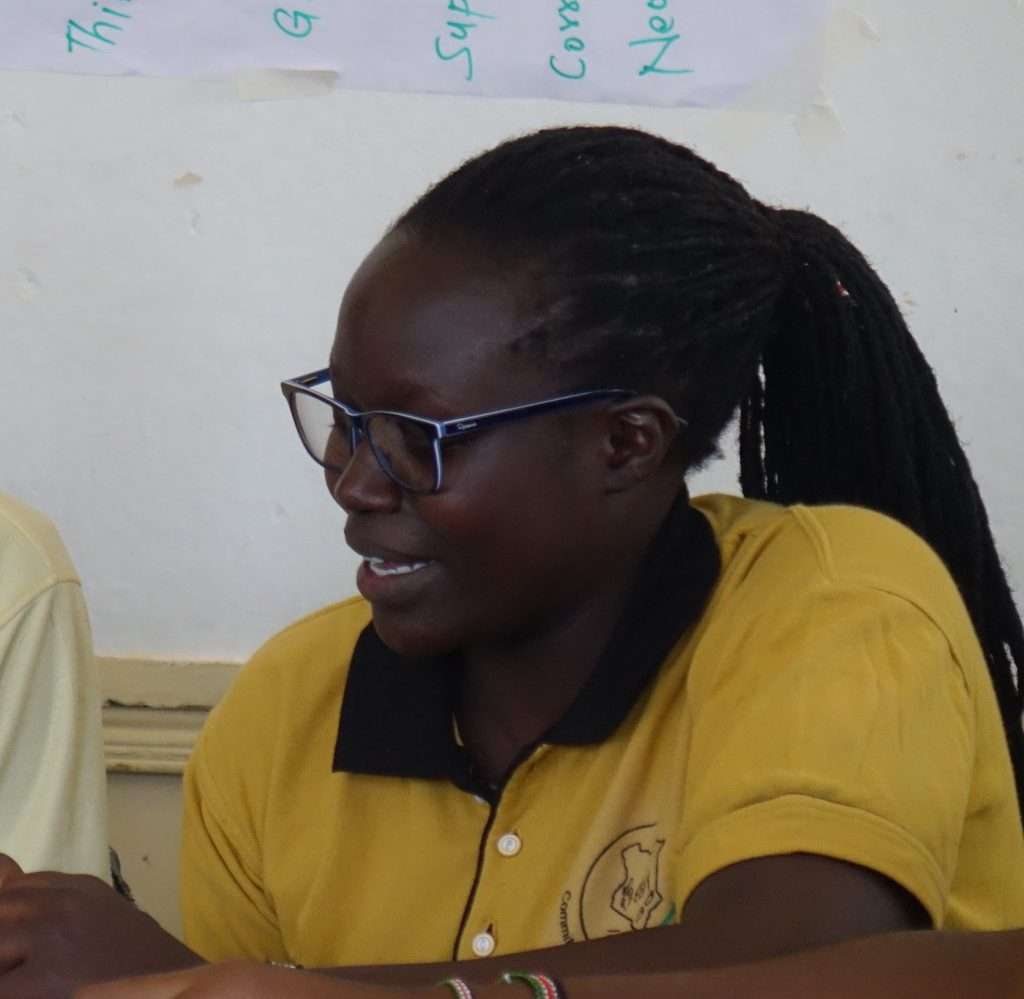
“The session on psychosocial development was of utmost importance to me, I have come to understand that the upbringing of a child is crucial from the moment he or she is born. If a person experiences something in his or her childhood it will come to manifest in the future. What I am taking home from this training is that, am going to be a person who is going to bring change, to care for those that are affected by HIV, to rally the youth in protecting those affected by this disease to reduce stigmatization.”– Naomi Ivy
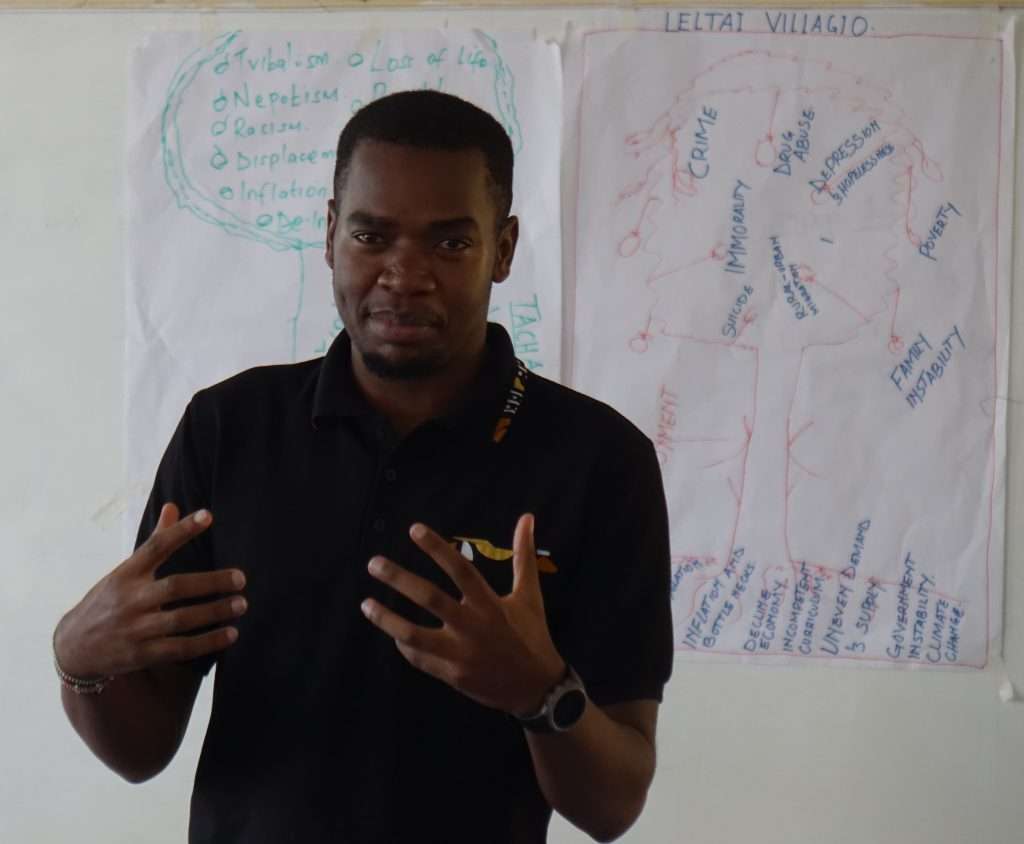
“The mindset part was informative for me, particularly when the trainer talked about changing oneself from a fixed mindset to having a growth mindset, I have been challenged to think differently and my relations with other people. As I come from this training, I consider myself as a mentor, and am going back to my community to teach and mentor the young people. In the next six to twelve months I am expecting that somebody will benefit from the knowledge I have got from this training.” – Kelvin Webi
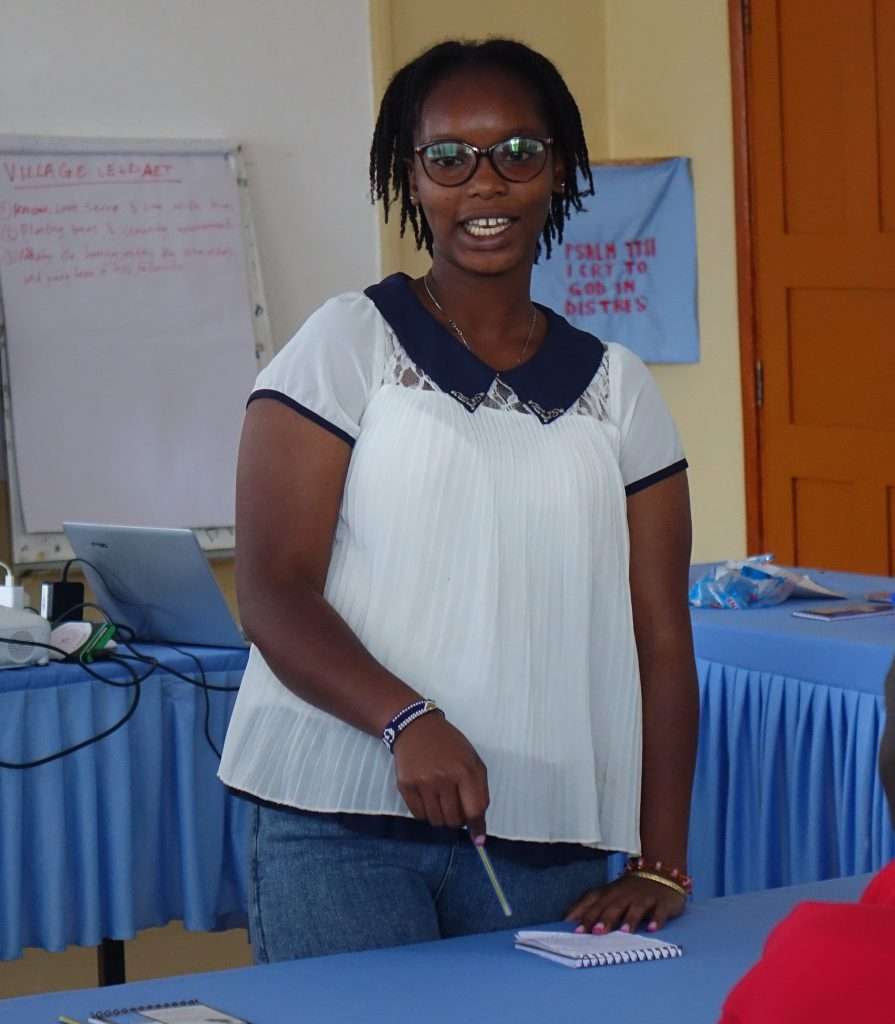
“The AHAPPY Training is more about myself and the world, to use my skills to make the world a better place. I was touched by the video that we watched during the session, the testimonials, current statistics on those who are infected by HIV, especially the number being high among the youth was a wake-up call to me and fellow youths to do something that will bring about a positive change. My parting shot is that, am going to look at the world as a positive place, to create a positive life from it, this is something that I have got from the training, whatever you perceive, or whatever you are doing is what you attract.”
–Grace Kimotho
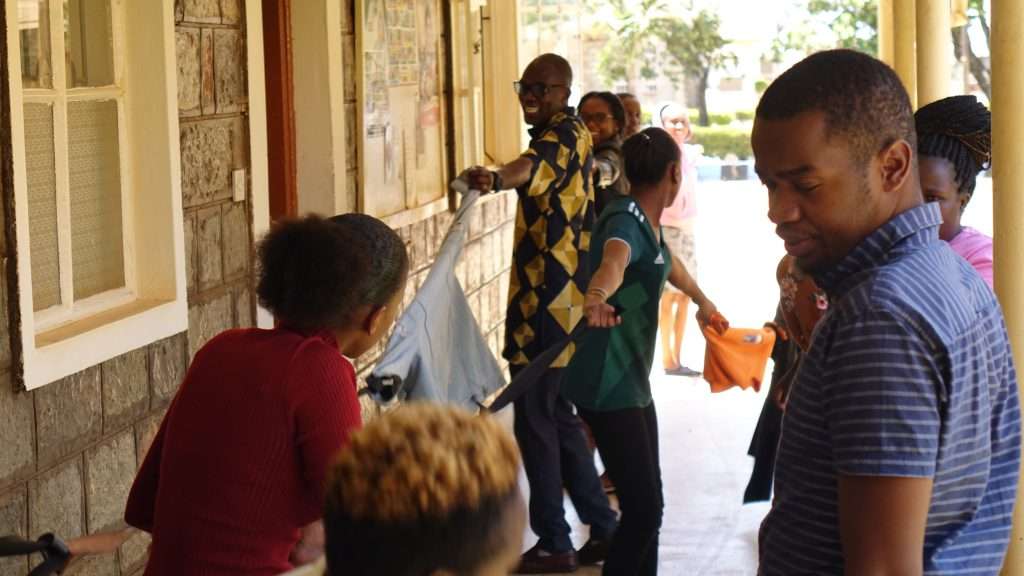
On the final day of the training, Fr. Jonas, youth chaplain invited the Bishop of the Catholic Diocese of Eldoret, Rt. Rev. Dominic Kimengich to address the youth leaders. In his message, he said, “we are lucky to have been selected by the AJAN team as the third diocese as they continue rolling out the AHAPPY training to our youth. I understand AJAN is the work of the Society of Jesus in Africa under the Catholic umbrella, the society is made of Jesuits who go out of their way to transform the World and evangelize, the Jesuits are known for formation especially when it comes to areas of education, they are academics who are thoroughly knowledgeable and valuable to the church not only to the young people but to all of us. Therefore, whatever good you have received from these formation, as young people be ready to share because we are missionaries by nature.”
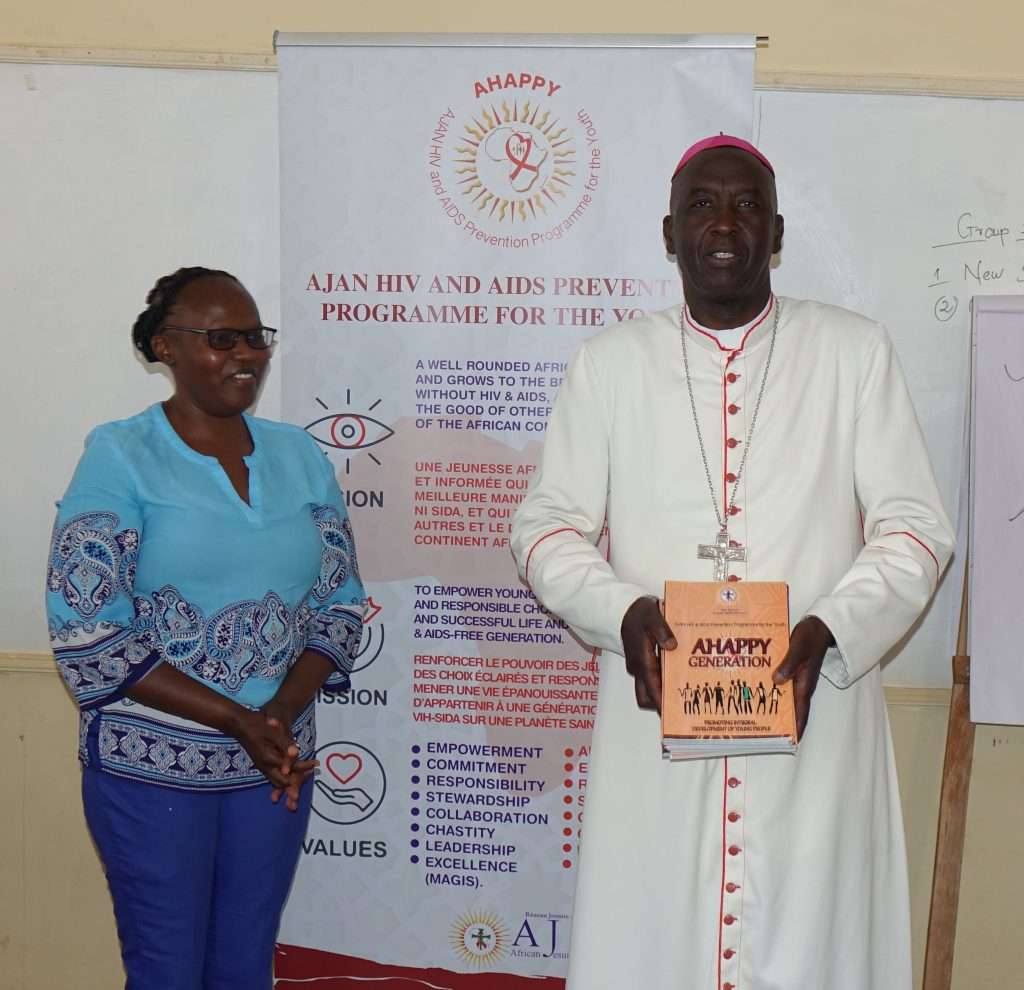
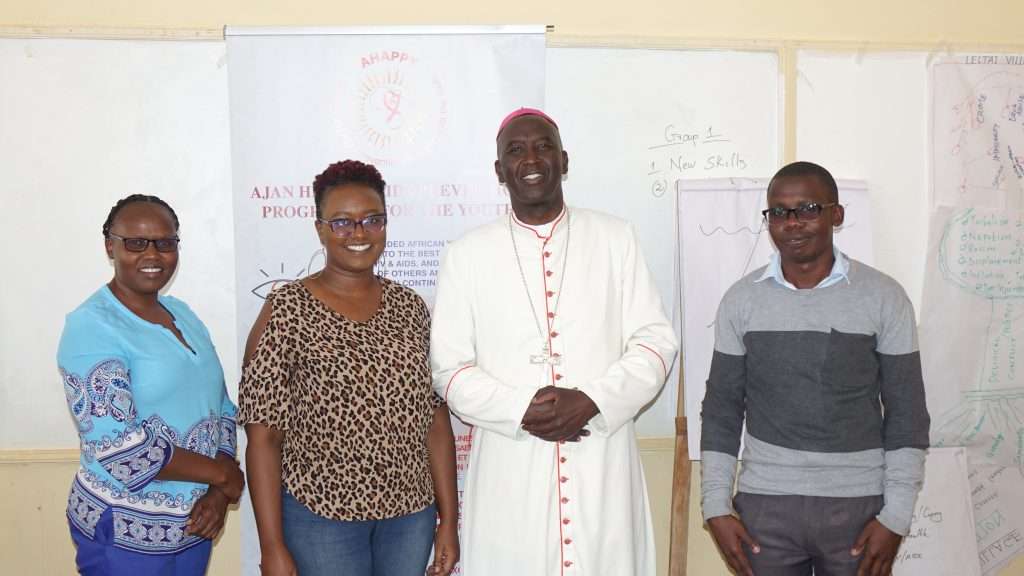
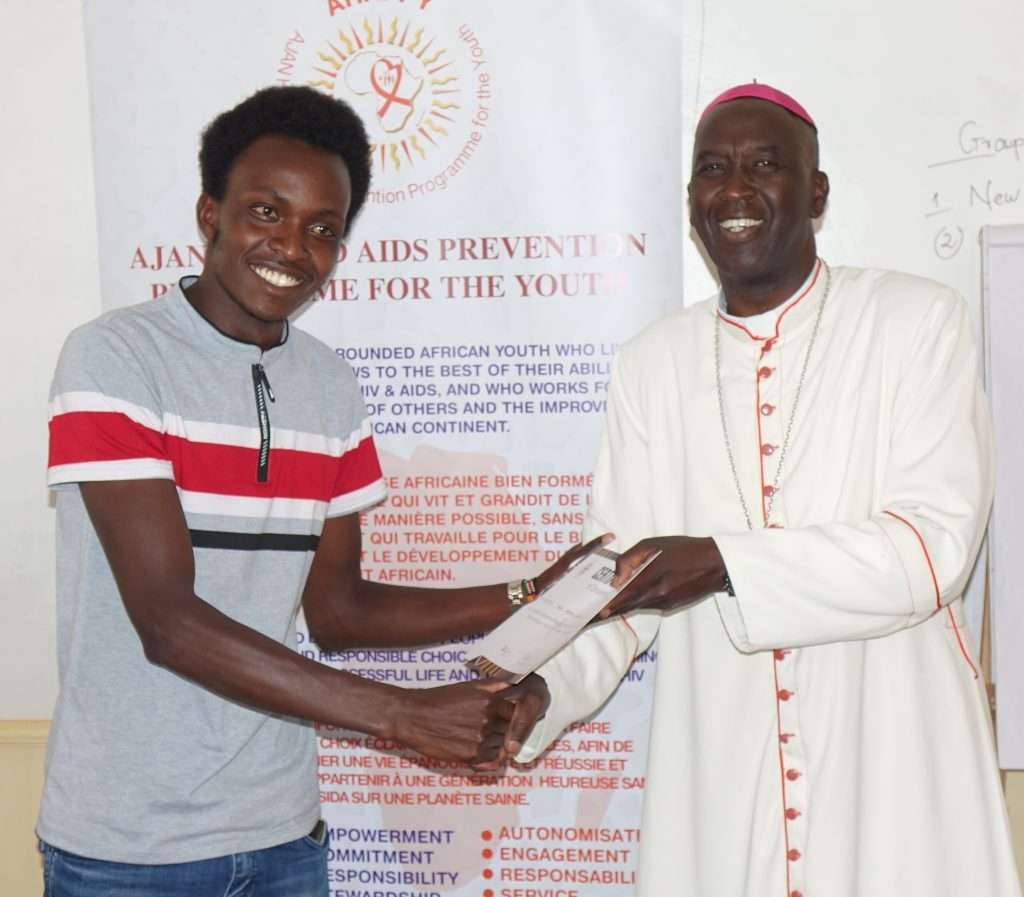
The training was brought to a close with Bishop Rt. Rev. Kimengich, awarding the 23 youth participants with certificates. He also offered his blessings and commissioned them to accompany young people in their respective Parishes. The youth leaders who undertook the training are expected to go out of their way in helping youth and young adults to see the Parish as a place where the community begins, they are expected to create an environment where they feel at home, where they share and dialogue about their ideas and questions that touch on their social and economic life, they are to be a gift in ministering, providing service, and leadership to all.
By,
Dennis Owuoche
AJAN Communications Officer

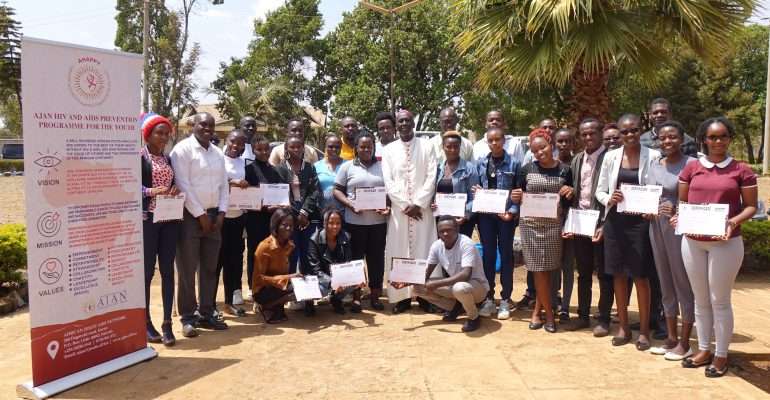
Comments are closed.